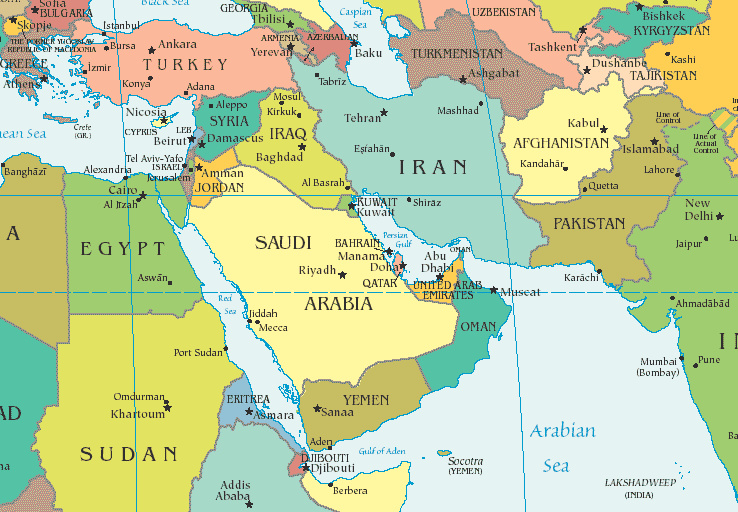Iran Should Review its Middle East Policy

Now, a decade after the important and influential events of September 11, we are faced with a different world and a different region. Developments in the region have undoubtedly been influenced by global and international developments, and regional developments, with their specific perspectives and beliefs, have mutually had an influence on American and European terminology and methodology.
Some of these developments have been to our advantage and have been in line with our heart-felt long-felt desires, while others have been in contrast with our views and our national, traditional, and religious beliefs. However, as a whole, the phenomena taking place in the political world today can be regarded as blessed events. People have awakened and now regard democracy and ballot boxes as the means to define their own future. Therefore, as a whole, developments that have taken place in the region in the past decade have been beneficial to our political system and the beliefs that the Islamic revolution has brought us, and we must look at them optimistically.
Meanwhile, we still witness systems of tyranny and monarchy in the region, such as in Saudi Arabia, which are losing their image and position in the region and the world’s public opinion more and more every day.
Egypt is also experiencing this issue. Despite the soft coup d’état that took place in Egypt last week, political developments are moving in a positive direction and this is a blessed change.
However, the most important question that arises is, what strategy does our foreign policy have to link itself to a Persian Gulf with these new characteristics? Does our foreign policy basically have any way to revive our position in the region? It is obvious that based on the requirements of power in the region, Iran, Turkey, and Egypt are the three powers and principle players in the Middle East and in the Islamic world. Turkey has defined its strategy and has found its way. Egypt is currently dealing with domestic challenges. We can see these domestic challenges in Egypt in the events of the past few weeks. The army, former workers, a bi-polar society, the Muslim Brotherhood’s social diversity, the status of Copts, etc., are all parts of these challenges.
We should not forget that one of the most important reasons behind Mubarak's fall was the military's distance from him. If the military had continued to support Mubarak in his last days, Egypt would have plunged into a civil war. However, the absence of support for Mubarak on the part of the military led to his ouster. The important point is that during the past two hundred years, the military in Egypt has been involved in politics.
Egypt is in crisis from a foreign perspective too. In addition to the United States and Israel, the main crisis in Egypt's foreign policy is with Saudi Arabia and countries in the region, meaning that Egypt's traditional and historical rivals are the most important challenges facing this country in its foreign policy.
Iran and Egypt have many cultural, civilizational and historical commonalities which today can be the basis for bilateral relations. Culturally and politically, Iran and Egypt think similarly on the issue of globalization. Moreover, with regard to combating terrorism and radicalism, we have similar positions. The fight against a domineering system and the need for non-intervention of the U.S. and Europe in the affairs of Islamic and regional countries are among issues that can be the basis for our relations. Iran and Egypt may have different positions on Israel, but this difference can be reduced. However, on the issue of Palestine and the establishment of a Palestinian state, we share the same position. Furthermore, on the subject of referring to the people's opinion, Iran and Egypt have similar positions as well.
All in all, it can be said that elements affecting developments in Egypt show that this country will have many developments which will be auspicious for Iran and the Islamic world. However, in order to benefit properly from this opportunity, Iran should review its Middle Eastern policy and consolidate its bonds with Turkey and Egypt in order to manage the foundations of new developments in the region. To be sure, we are in serious competition with Saudi Arabia. All Egyptian security, defense and military organizations are in the service of intelligence systems supporting radicalism in the region, and this is a serious threat to Iran, Turkey and Egypt. If a government comes to power in Egypt which reviews its relations with Saudi Arabia, then Saudi Arabia, Qatar, and others will certainly try to export terrorism and Salafism to the region. However, what is important is that the future of the region is in the hands of Turkey, Egypt and Iran and that these three countries should, through organizing new arrangements, be able to overcome difficulties emanating from the former order in the region.

